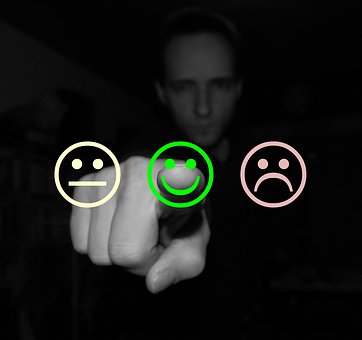Why Isn’t Everybody Smiling?
When the whole world gets a kick out of seeing people smile … when even medical experts say it takes less muscles to smile than to frown … it’s sort of weird to know that some cultures actually frown on smiling. You know what they say … truth is stranger than fiction. And it’s true. Some societies do not encourage casual smiles. In Russia, it is said there is an old proverb that translates into something like “Smiling or laughing for no reason is a sign of stupidity.” And, this cuts both ways. When these people come visiting to the U.S., they would most often think it odd to be smiled at by total strangers. The Big Question : Why? A recent report by Kuba Krys, a psychologist at the Academy of Sciences in Poland provides some answers. His paper says that in some countries, smiling is not perceived to be a sign of warmth or even respect. It is seen to be a sign that you’re a fool, a fool out to trick people. Krys focused on a cultural phenomenon known as “Uncertainty Avoidance”. Countries which generally rate low on this scale would have their social systems (i.e. social security, health care system, safety nets, etc.) unstable and shaky. Ergo, people would view their future as being unpredictable and erratic with very little control. So, when you come right down to it, smiling being a sign of certainty and confidence, people who would smile in these places with lowly-rated Uncertainty Avoidance would look odd. After all, why would you be smiling when your future looks like an invisible vulture waiting to eat you up? You might, in fact, under these circumstances be seen as a fool or stupid for smiling. They Don’t Smile In Corrupt Countries Either This expert psychologist went on to hypothesise that in corrupt countries, smiling would also be frowned upon. When everybody’s trying to fool you into a scam or pull one over one another, you’d never know if a person’s smiling because he’s got good intentions or because he’s trying to fool you. Testing The Theory To validate his theory, Krys had thousands of people in 44 countries judge a series of 8 smiling and non-smiling faces on a scale of honesty and intelligence. He then compared the answers against the country’s rankings on Uncertainty Avoidance for a study of 62 societies and ratings of corruption. What he found was that in countries like Switzerland, Germany, China and Malaysia, the smiling faces were rated as significantly more intelligent than those people who were non-smiling. On the other hand, in Japan, South Korea, India and Russia, the smiling faces were perceived as being significantly less intelligent. So What Does This Tell Us? It would seem that there is a strong correlation between how unpredictable a society is and the tendency to consider smiling as unintelligent. But let’s face it, at the end of the day … what have you got to lose by smiling. Smile and the whole world smiles with you!
Why Isn’t Everybody Smiling? Read More »




